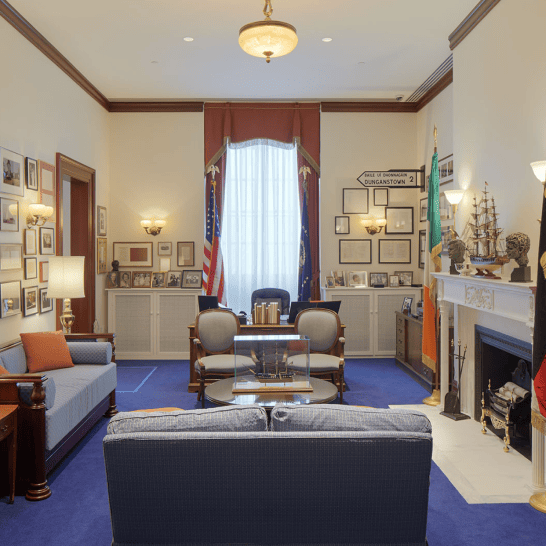Senator Kennedy’s Legacy
Timeline Highlights
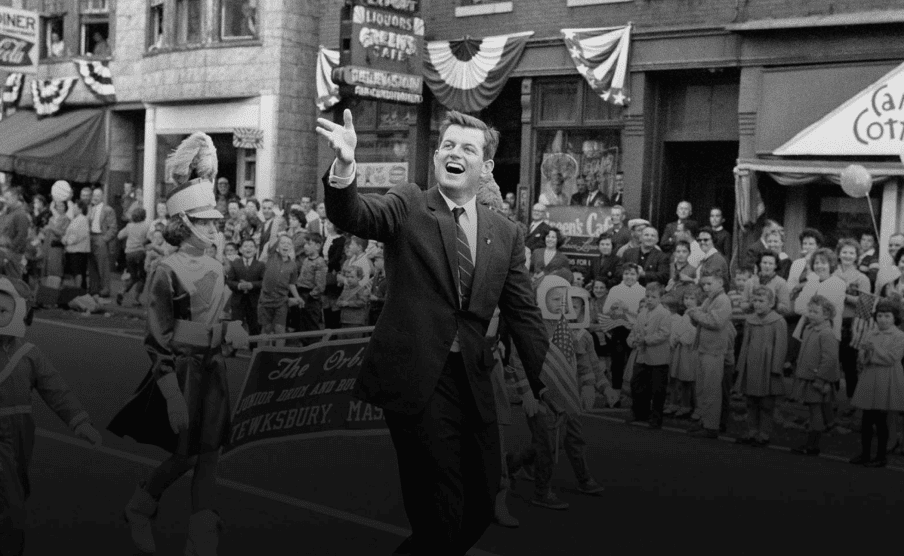
Elected to the Senate
1962
Edward M. Kennedy was first elected in a special election held on Nov. 6, 1962. Kennedy joined the United States Senate at the age of 30, replacing Benjamin Atwood Smith in the seat JFK had vacated in order to become president in 1960.
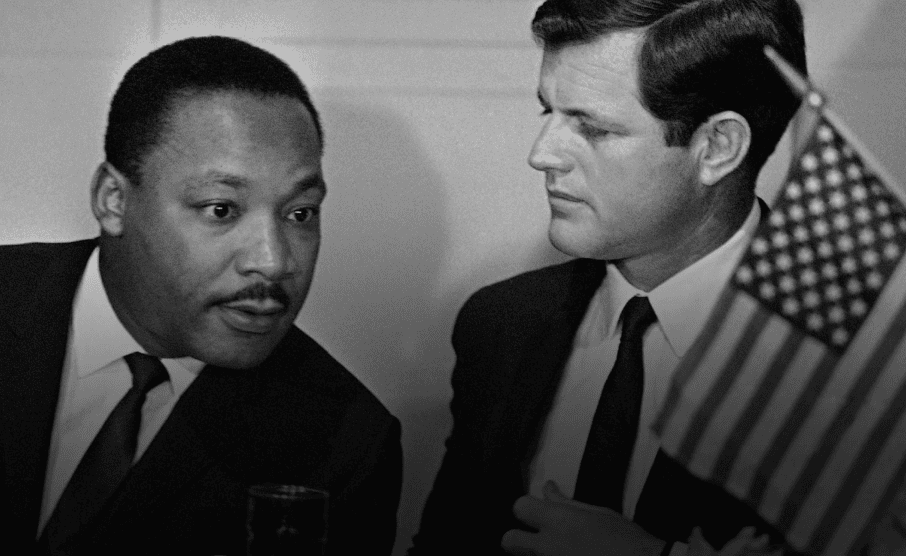
Civil rights act
1964
The Senator gave his maiden speech addressing the full Senate on the historic Civil Rights Act in April of 1964. On June 19th 1964, Senator Kennedy voted in favor of the historic Act, which prohibited discrimination in public places and in employment practices.
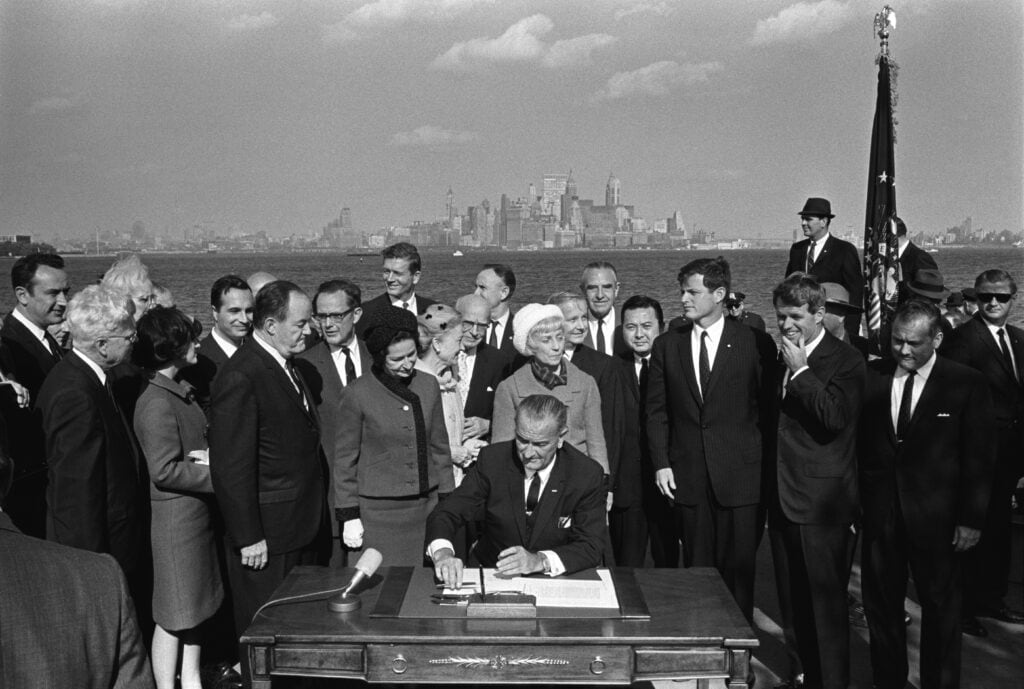
immigration & nationality Act
1965
Senator Kennedy cosponsored and managed the bill that became the 1965 Immigration and Nationality Act. Introduced by Senator Philip Hart (D-MI), this bill attempted to end discriminatory U.S. immigration practices by repealing the national origins quota system that favored Western European countries.
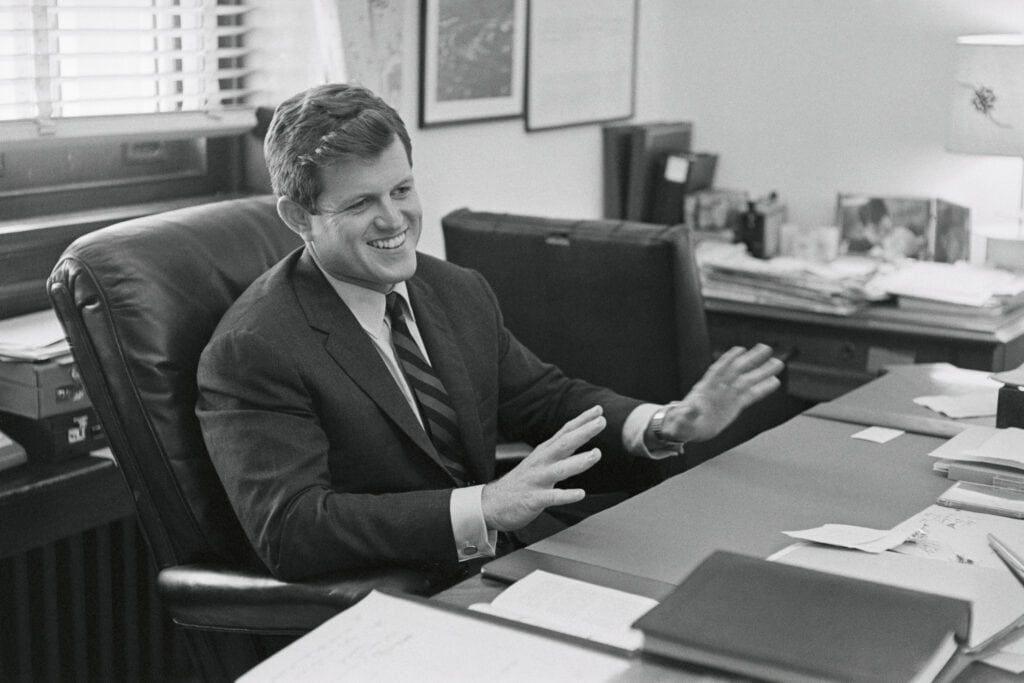
One man, one vote
1967
Senator Kennedy successfully teamed with Senator Howard Baker (R-TN) to preserve the Supreme Court’s “one man one vote” decisions, which required states to apportion legislative districts equitably.
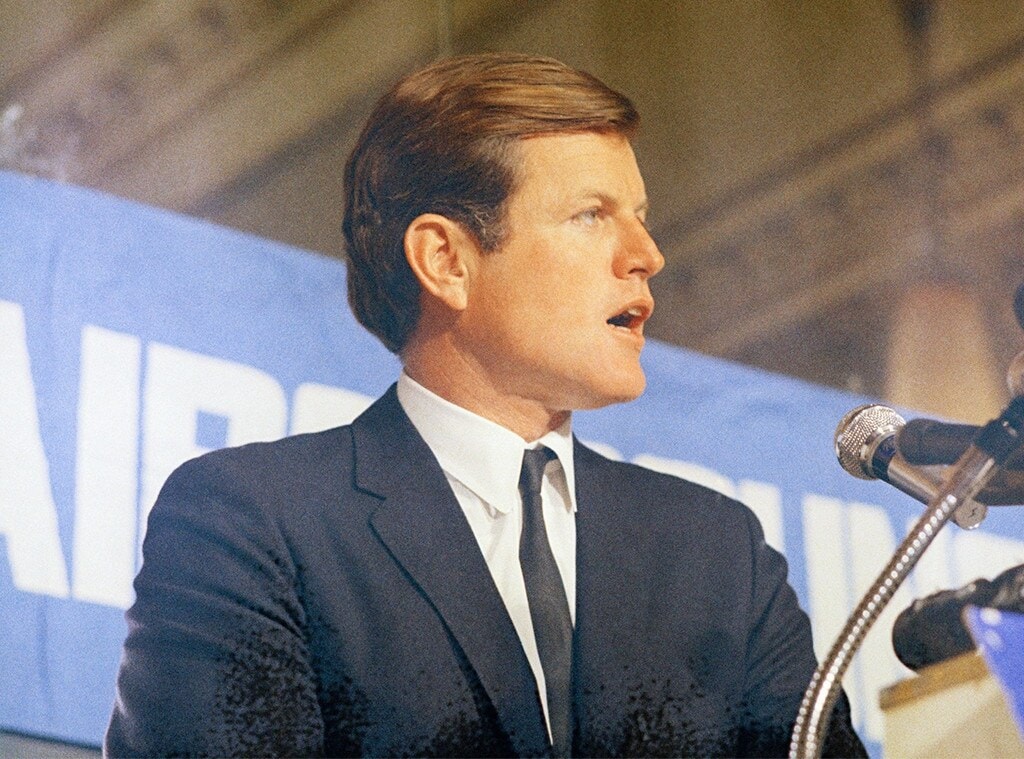
mental and developmental disabilities
1970
Senator Kennedy sponsored the 1970 legislation to improve federal programs for people with developmental disabilities, an issue with deep personal importance for his family. The 1970 legislation defined developmental disabilities on the national stage, expanded the population included within the definition, and laid significant groundwork for all legislation leading up to the Developmental Disabilities Act of 2000.
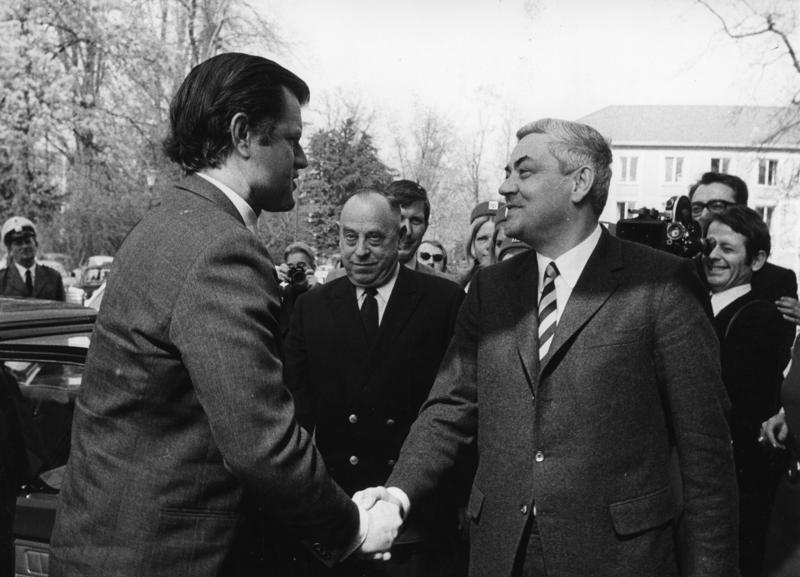
national cancer act of 1971
1971
This federal law established a national goal “to conquer cancer at the earliest possible date” and dramatically increased national funding for cancer research. It was one of Senator Kennedy’s early landmark achievements in healthcare legislation.
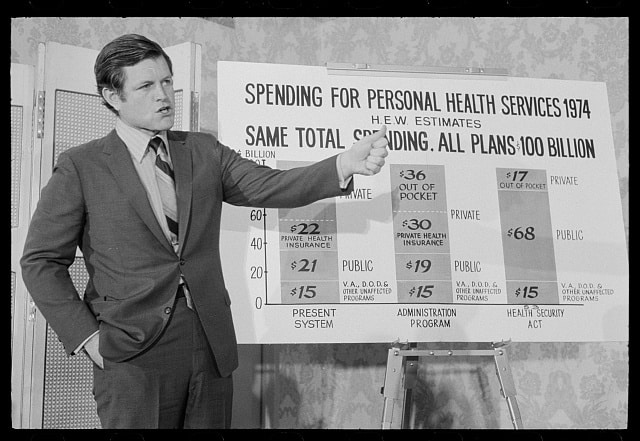
edu. for all handicapped children act
1975
Senator Kennedy co-sponsored the Education for All Handicapped Children Act of 1975 (the Individuals with Disabilities Education Act). The law created education rights for children with special needs, expanding federal education aid for children with disabilities.

the refugee act of 1980
1980
Throughout his career, Senator Kennedy was committed to helping refugees — people uprooted due to plight or attempting to flee oppression from countries in Southeast Asia, Africa, Central America and the former Soviet Union. Among numerous bills he authored, the Refugee Act of 1980 created a legal standard for determining who was a refugee.

extending the voting rights act
1982
Working with Senators Bob Dole (R-KS) and Charles Mathias (R-MD), Senator Kennedy was the chief sponsor of the Voting Rights Act, extending its duration for another 25 years. This legislation made it easier to identify and address discriminatory election laws.
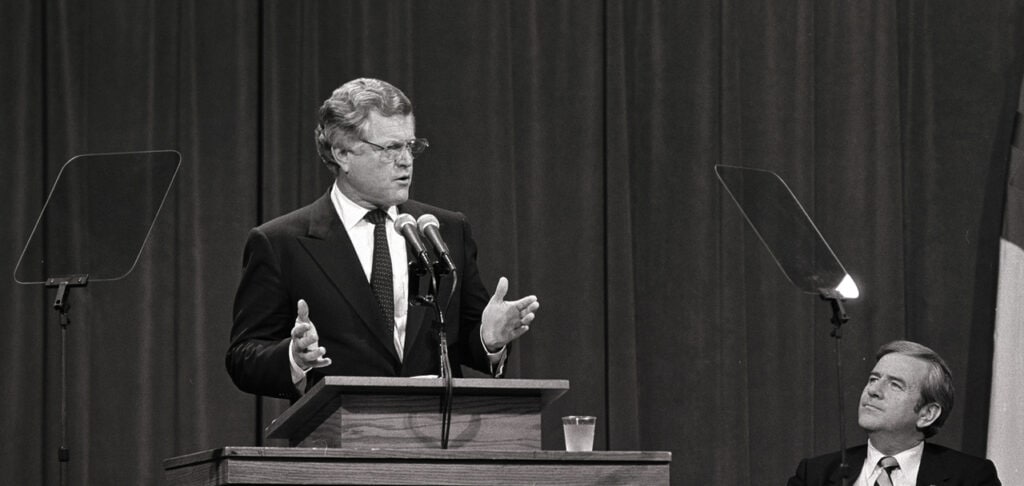
comprehensive crime control act
1984
Senator Kennedy helped enact crime legislation that created greater uniformity in federal sentencing and established the U.S. Sentencing Commission in order to create sentencing guidelines for the federal courts.

anti-apartheid act & veto override
1986
Senator Kennedy supported the cause of democracy in South Africa with the passage of the 1986 Anti-Apartheid Act. After Reagan’s veto of the bill, Senator Kennedy succeeded in getting the President’s veto overturned with a 78-21 vote in the Senate.
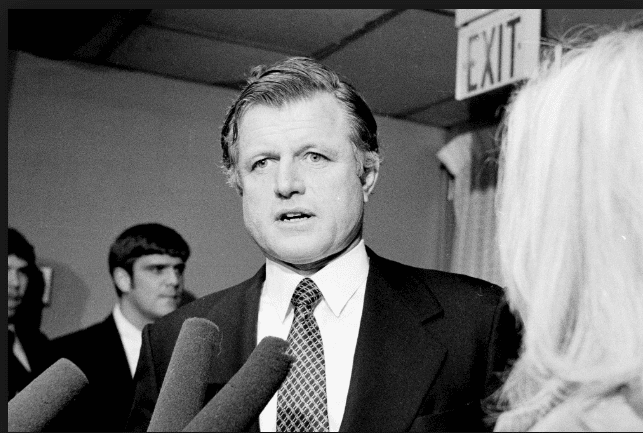
USSR intermediate-range nuclear treaty
1987
Amid heightened concern over the threat of nuclear war, Senator Kennedy joined with Senator Mark Hatfield (R-OR) in 1982 to call for a nuclear freeze. Following a trip to Russia in 1986, Senator Kennedy relayed to the Reagan Administration that Soviet Leader Mikhail Gorbachev was willing to negotiate a treaty on nuclear weapons in Europe. The resulting landmark Intermediate-Range Nuclear Forces Treaty, signed in 1987, eliminated intermediate-range nuclear and conventional ground-launched missiles.
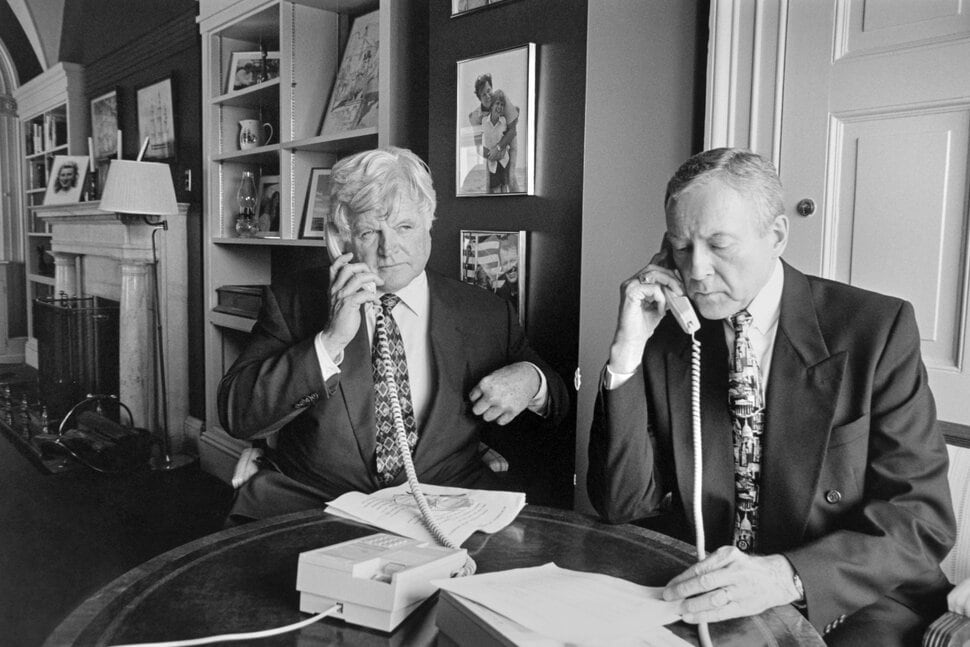
the americans with disabilities act
1990
The most important disability rights legislation in American history, the Americans with Disabilities Act sponsored by Senator Tom Harkin (D-IA) and co-sponsored by Senator Kennedy, Senator Orrin Hatch (R-UT), Senator Bob Dole (R-KS) and others, provided broad protection against bias in public accommodations and employment for people with disabilities.

health insurance portability and accountability act (hippa)
1996
Working across the aisle with Senator Nancy Kassebaum (R-KS), Senator Kennedy co-sponsored legislation that protected health insurance coverage for workers and their families when they change or lose their jobs.

no child left behind act
2001
Senator Kennedy worked with the Bush administration to pass No Child Left Behind. He believed the legislation showed promise for holding schools accountable for the education of all children, regardless of their background. It mirrored successful school reform programs in Massachusetts.
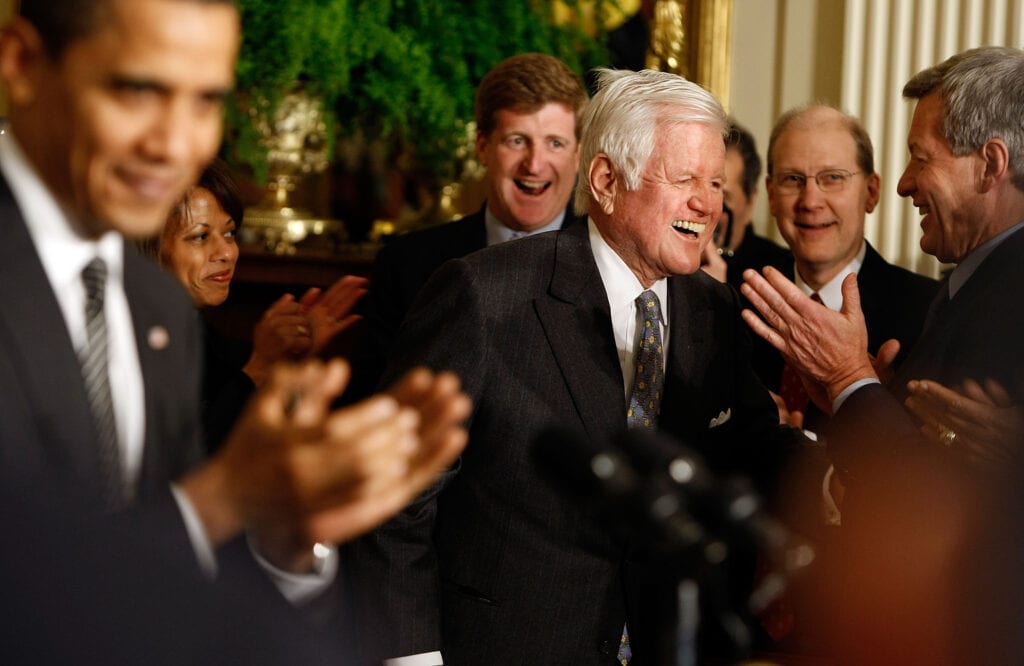
comprehensive immigration reform
2005
Senators Kennedy and John McCain (R-AZ) worked with the White House to create an immigration bill that tightened border patrols and established a temporary visa and legalization program. The bipartisan legislation cleared the Senate, but faced strong opposition in the House over the Senate’s provision for providing a pathway to citizenship for undocumented immigrants already in the country.
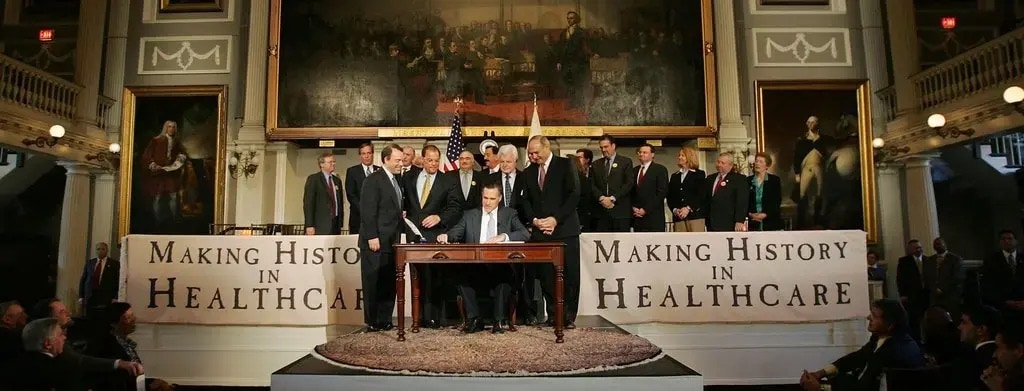
universal health care
2006
Supporting the work of elected officials, business and community leaders across the state, Senator Kennedy helped to pass universal health care in the Commonwealth. Governor Mitt Romney signed the bill into law in 2006. By 2010, the Act enabled over 98% of Massachusetts residents to gain access to health insurance. This successful program became a model for the Affordable Care Act signed into law by President Obama in 2009.

mental health parity and addiction equality act
2008
Long-term efforts by Senator Kennedy to afford mental health the same coverage as physical illnesses were realized in the enactment of legislation that required insurance companies that provide mental health benefits to make them no different from other medical benefits with similar co-pays, deductibles, and limits.
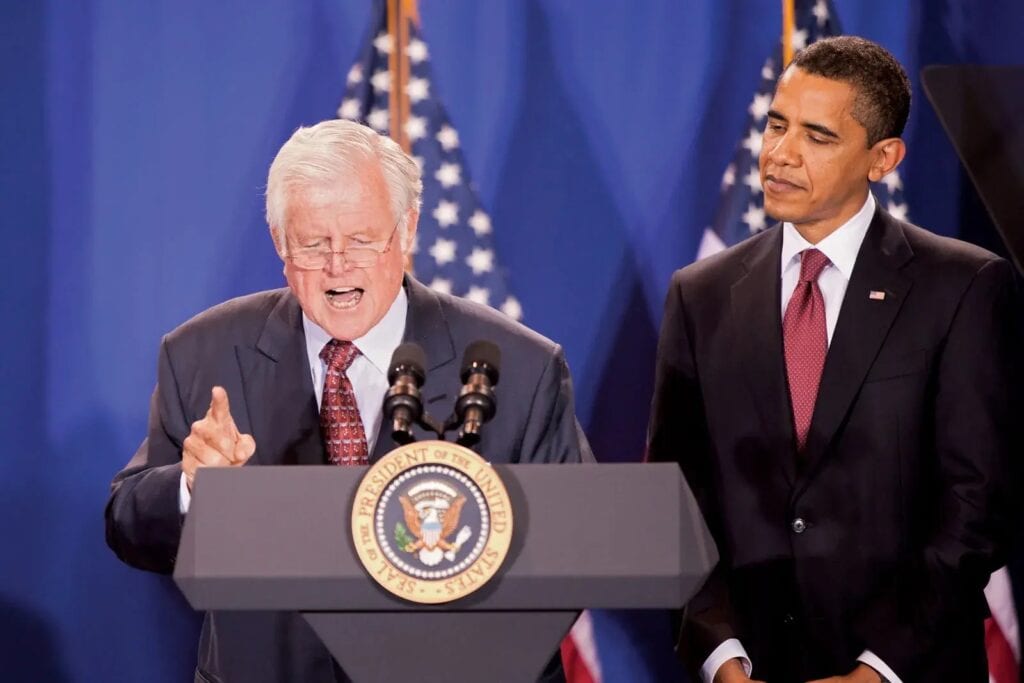
patient protection & affordable care act
2009
Senator Kennedy’s staff for the Health, Education, Labor, and Pensions (HELP) Committee held countless meetings with representatives from constituency groups and major stakeholders. The committee members marked up the first version of the health reform bill that would be signed into law by President Obama. Senator Kennedy’s was the first committee in Congress to draft legislation that would provide quality, affordable health care for all Americans and enshrine a patients’ bill of rights into law.
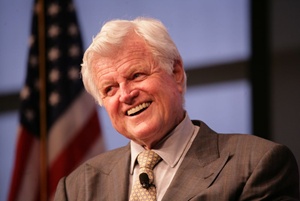
tobacco control act
2009
Senator Kennedy’s efforts to regulate tobacco, dating back to the 1980s, reached fruition when Congress passed this Act by wide margins, giving the Food and Drug Administration authority to regulate tobacco products for the first time in history.
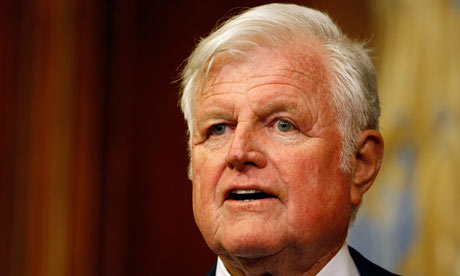
Senator edward m. kennedy serve america act
2009
President Obama signed the Edward M. Kennedy Serve America Act, increasing opportunities for national and community service by Americans of all ages. The legislation reformed the national service laws, expanding volunteer opportunities, social innovation efforts, and community engagement.
Edward M. Kennedy dedicated more than four decades to the United States Senate. One of the longest-serving senators in U.S. history, Kennedy was known for his ability to work across party lines to get important legislation passed. Senator Kennedy’s legacy lives on in the Institute, helping to ensure the next generation of American leaders are informed and engaged in our government.
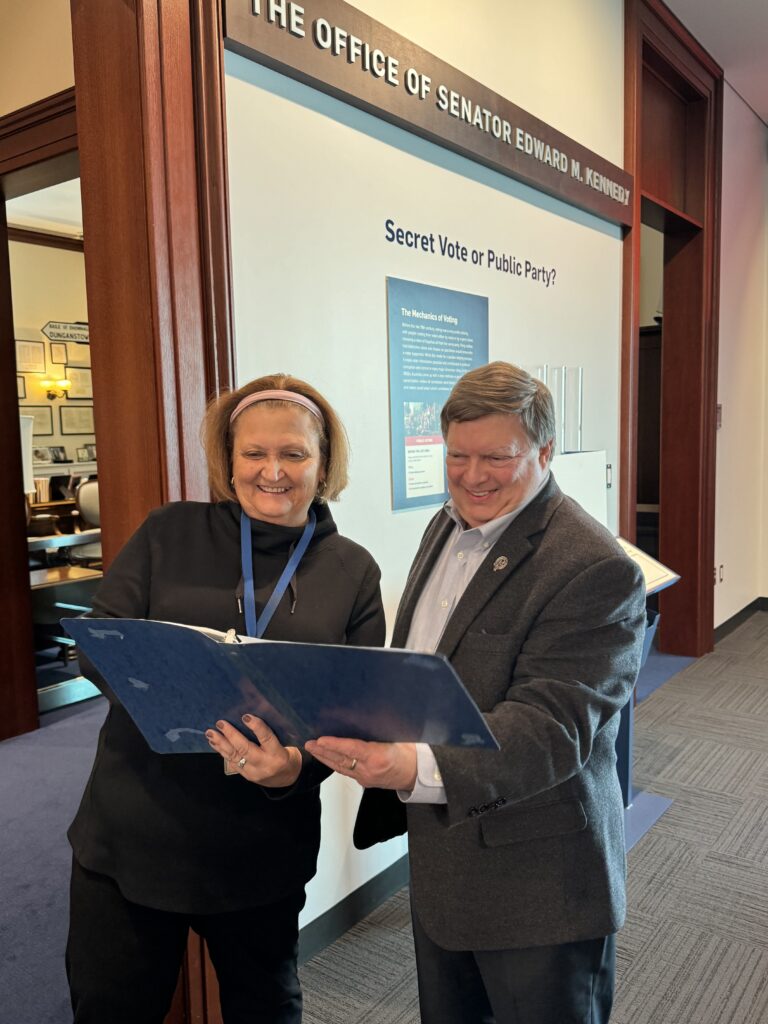
Donating Your Materials
All offers to donate materials or memorabilia related to Senator Kennedy’s legacy must be made through this donation offer form.






